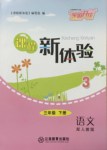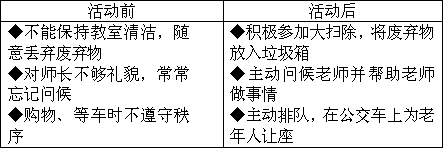
Everybody knows Charlie Chaplin, a world-famous funny actor. People everywhere have laughed at Charlie Chaplin's films 31 tears run down their faces. From his very first 32 they know what will happen. The little man is always with black moustache, wide-open eyes, round black hat and 33 too large for his feet. He’ll 34 through snow, and fall from windows. He’ll fight men who are twice his 35 or fall in love with women, who 36 notice him and try to hug them.
The poor man that Charlie Chaplin 37 in dozens of films makes all kinds of stupid mistakes. He is always in trouble but he never 38 .He dreams of becoming a great man.
Even people who don’t understand English can 39 Chaplin's films, because they are mostly 40 .It isn't what he says that makes people laugh. His comedy doesn't depend on words. It depends on little 41 which mean the 42 thing to people all over the world.
Chaplin raises his thick eyebrows or rolls his eyes. He hides behind a fat lady or under a table to escape from his 43 . He dresses well and pretends to be a rich and important man. It is all so hopeless and 44 that he makes us laugh. This is the 45 of Chaplin's huge success.
31. A.if B. once C. because D. until
32. A.disappearance B. appearance C. words D. emotions
33. A.trousers B. stocks C. shoes D. hands
34. A.sleep B. sit C. play D. struggle
35. A.length B. size C. greatness D. width
36. A.hardly B. deeply C. widely D. luckily
37. A.played B. recognized C. loved D. fooled
38. A.comes down B. gets away C. goes back D. gives up
39. A.observe B. watch C. enjoy D. see
40. A.frightening B. silent C. pleasant D. moving
41. A.actions B. expressions C. stories D. words
42. A.some B. different C. same D. bitter
43. A.enimies B. own C. characters D. films
44. A.possible B. impossible C. instructive D. tired
45. A.way B. beginning C. theory D. secret
 芝麻开花课程新体验系列答案
芝麻开花课程新体验系列答案科目:高中英语 来源:名师伴读高中英语二年级上 题型:054
完形填空
At one time Einstein travelled all over the United States giving lectures. He travelled 1 , and soon became quite 2 with the driver.
The driver always 3 Einstein's lecture, 4 the great scientist gave again and again. One day he told Einstein that he 5 the lecture so well that he was sure he could give it 6 . Einstein smiled and said, “Why don't you give the lecture for me next time?” The driver 7 That evening, both of them went along to the 8 . 9 there had seen Einstein before. As the driver 10 on the stage (讲台) everybody clapped (鼓掌). Then he began the lecture seriously. Sure enough, he 11 make a single mistake. It was a great success, and when it was over, people clapped and clapped. Then he started to 12 , shaking hands 13 everybody, 14 Einstein followed a few steps behind.
Just before they go to the door, a man 15 them and asked the driver a very difficult question. The driver 16 carefully. Of course, he did not 17 a thing. but he nodded as if he did. Then the man stopped 18 , the driver said that he thought the question was very 19 but really quite simple, In fact, 20 show how simple it really was, he would ask his driver to answer it!
1.
[ ]
2.
[ ]
3.
[ ]
4.
[ ]
5.
[ ]
6.
[ ]
7.
[ ]
8.
[ ]
9.
[ ]
10.
[ ]
11.
[ ]
12.
[ ]
13.
[ ]
14.
[ ]
15.
[ ]
16.
[ ]
17.
[ ]
18.
[ ]
19.
[ ]
20.
[ ]
查看答案和解析>>
科目:高中英语 来源:2004全国各省市高考模拟试题汇编(天利38套)·英语 题型:054
完形填空
阅读下面短文,掌握其大意,然后从以下各题所给的四个选项(A、B、C和D)中,选出最佳选项。
If you do not use your arms or your legs for some time, they will become weak; and when you start using them again, they will slowly become strong again. 1 knows this, and nobody would think of 2 the fact.
Yet there are many people who 3 to know that the memory works in the same way. When someone says that 4 has a good memory, he 5 means that he keeps his memory 6 practice by exercising it very 7 , either consciously or unconsciously. When someone else says that his memory is 8 , he means that he does not give it enough 9 to become strong. The position is exactly the same as that of 10 people, one of 11 exercises his arms and legs by playing balls, while the other 12 in a chair or a car all day. If a friend of yours says that his arms are weak, we know that it is his own 13 . But if he tells us that he has a poor memory, 14 of us think that his parents are to blame, or that he is just 15 , and few of us realize that it is just as it was his arms or legs that were weak. Not all of us can become very strong in body or very clever in mind, 16 all of us can improve our strength and our memory by the same means  17 .
17 .
Have you ever 18 that people who cannot read or write usually have 19 memories than those who can? Why is this? Of course, because they cannot write down something in a little notebook or something else. They have to remember names, places, songs and stories; so their memory is always being exercised.
In a word, if you want to have a good memory, 20 practise remembering.
1.
[ ]
2.
[ ]
3.
[ ]
4.
[ ]
5.
[ ]
6.
[ ]
7.
[ ]
8.
[ ]
9.
[ ]
10.
[ ]
11.
[ ]
12.
[ ]
13.
[ ]
14.
[ ]
15.
[ ]
16.
[ ]
17.
[ ]
18.
[ ]
19.
[ ]
20.
[ ]
查看答案和解析>>
科目:高中英语 来源: 题型:056
书面表达
新学期开始,学校开展了“争作好学生、好公民”的活动。请你以“Creat Changes”为题向《中学生英语报》投稿,记述自开展活动以来同学们所发生的巨大变化。
注意:
(1)报道须包括以下表格的主要内容,词数不少于60;
(2)报道的开头已给出。

The activity of being a good student and good citizen has been held since the beginning of this term in our school. Everybody has taken an active part in it.
查看答案和解析>>
科目:高中英语 来源:训练必修五英语北师版 北师版 题型:054
| |||||||||||||||||||||||||||||||||||||||||||||||||||||||||||||||||||||||||||||||||||||||||||||||||||||||||||||||||||||||||||||||||||||||||||||||||||||||||||||||||||||||||||||||||||||||||||||||||||||||||||||||||||||||||||||||||||||||||||||||||||||||||||||||||||||||||||||||||||||||||||
查看答案和解析>>
科目:高中英语 来源: 题型:阅读理解
Most people have heard of Shakespeare and probably know something of the plays that he wrote.However,not everybody knows much about the life of this remarkable man,except perhaps that he was born in the market town of Stratford?upon?Avon and that he married a woman called Anne Hathaway.We know nothing of his school life.We do not know,for example,how long it lasted,but we presume(推测)that he attended the local grammar school,where the principal subject taught was Latin.
Nothing certain is known of what he did between the time he left school and his departure(出发)for London.According to a local legend,he was beaten and even put in prison for stealing rabbits and deer from the estate of neighbouring landowner,Sir Thomas Lucy.It is said that because of this he was forced to run away from his native place.A different legend says that he was apprenticed(做学徒)to a Stratford butcher, but did not like the life and for this reason decided to leave Stratford.
Whatever caused him to leave the town of his birth,the world could be grateful that he did so.What is certain is that he set his foot on the road to fame when he arrived in London.It is said that at first he was without money or friends there,but that he earned a little by taking care of the horses of the gentleman who attended the plays at the theatre.They stopped and spoke to him.They found his conversations so brilliant(有才气的)that finally he was invited to join their company.
1.In the early life of Shakespeare,he ______.
A.attended a public school B.lived in London
C.studied Latin D.was put in prison for stealing cattle
2.Why was he forced to leave his native place according to this passage?
A.Because he didn’t want to go to school.
B.Because he left for London to become famous.
C.Because he had stolen deer and was beaten.
D.No one knows for certain.
3.What is the reason why the world could be grateful?
A.He wrote many world?famous plays. B.He was an actor.
C.He lived a hard life. D.He liked to travel all over the world.
4.“In time,as he became a familiar figure”“in time” means ______.
A.on time B.sometime C.some time later D.some time
5.The best title is ______.
A.The Early Life of Shakespeare B.Shakespeare’s Life in London
C.Shakespeare’s Role in Performance D.Shakespeare’s Later Life
查看答案和解析>>
湖北省互联网违法和不良信息举报平台 | 网上有害信息举报专区 | 电信诈骗举报专区 | 涉历史虚无主义有害信息举报专区 | 涉企侵权举报专区
违法和不良信息举报电话:027-86699610 举报邮箱:58377363@163.com